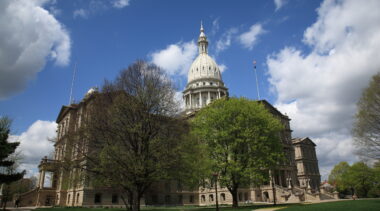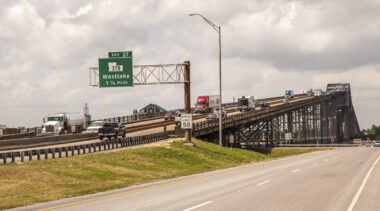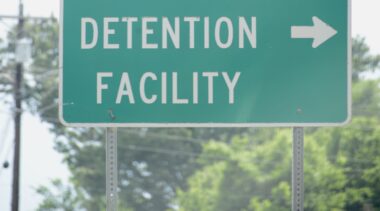-
State taxpayers’ share of MPSERS debt would increase under various proposals
The first 20.96% of each year’s unfunded accrued liability contribution is currently paid by local school districts, and any amount required above that is paid by the state.
-
Michigan requires greater transparency to support public trust in law enforcement
Michigan House Bill 5749 would clarify that law enforcement disciplinary records are not exempted from public records requests.
-
Delaying Mississippi PERS reform will increase cost to taxpayers
PERS faces a $25.5 billion shortfall largely due to unfunded benefit increases, investment underperformance, and insufficient employer contributions.
-
Regulated psilocybin access in Arizona would help treat mental health conditions
Arizona Senate Bill 1570 would create a regulated and limited program to access psilocybin.
-
Senate Bill 88 would expose Alaska to significant additional costs
This bill could realistically add $9.6 billion in additional costs to future state budgets and reintroduce Alaska to significant pension risk.
-
House Bill 2854 threatens Oklahoma’s pension progress
House Bill 2854 would re-expose Oklahoma to unnecessary unfunded liabilities, financial risks, and hidden costs that would ultimately be borne by taxpayers.
-
Redirecting MPSERS’ debt payment could cost taxpayers $1.4 billion
Eliminating a $670 million annual contribution into MPSERS would require an additional $1.4 billion over the next 14 years in net pension payments.
-
Major costs and risks associated with restoring the Florida Retirement System’s cost-of-living adjustment
Florida's cost of bringing back COLAs could rise above $32 billion over 30 years.
-
Missouri’s bill would revive bad pension funding policy
Pensions should not rely on variable fee revenue streams tied to the volume of activity in the criminal justice system.
-
Frequently asked questions about STATES Act 2.0
The STATES Act 2.0 is an incremental change that could garner the bipartisan support needed to move a marijuana bill through a deeply divided Congress.
-
Texas legislature should prioritize open enrollment and TRS reform in special session
School choice and public school advocates should agree to let students attend any public school with open seats and address the Teacher Retirement System's $63 billion debt.
-
A public-private partnership is the best way to rebuild Louisiana’s Calcasieu Bridge
Financial risks are transferred from taxpayers to private investors, including responsibility for cost overruns, late completion, failure to meet traffic forecasts, and toll revenue shortfalls.
-
Flavored products play an important role in tobacco harm reduction
Most smokers who switch to safer nicotine alternatives use flavored products.
-
Debunking the myth that vaping causes popcorn lung
There is no evidence that e-cigarettes cause popcorn lung. In fact, all of the evidence points to the contrary.
-
Examining recent crime trends and flaws in national statistics
It is important to understand crime data in context and avoid reactionary policy decisions.
-
Monetary sanctions and court fees are counterproductive to the goals of juvenile justice
Each year, an estimated 1 million youth enter juvenile courts.
-
Text message reminders can improve community supervision outcomes and reduce inefficiency
Nearly 3.7 million adults are on community supervision programs like probation and parole–that’s nearly twice the number of people incarcerated in jail or prison.
-
State tobacco and nicotine preemption and public health promotion
To maximize the benefits to public health, state legislators should preemptively reserve their state’s right to regulate nicotine products.

















